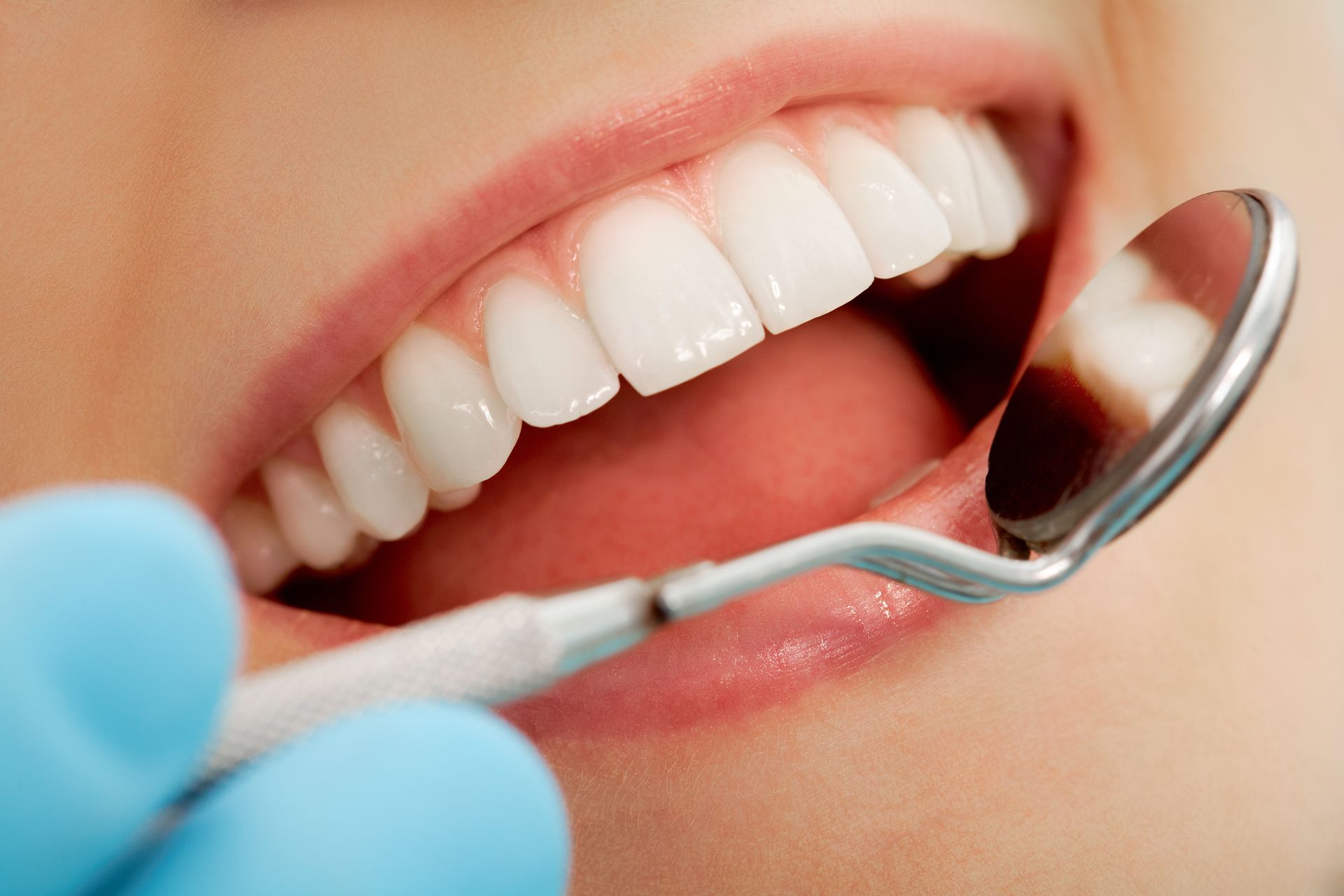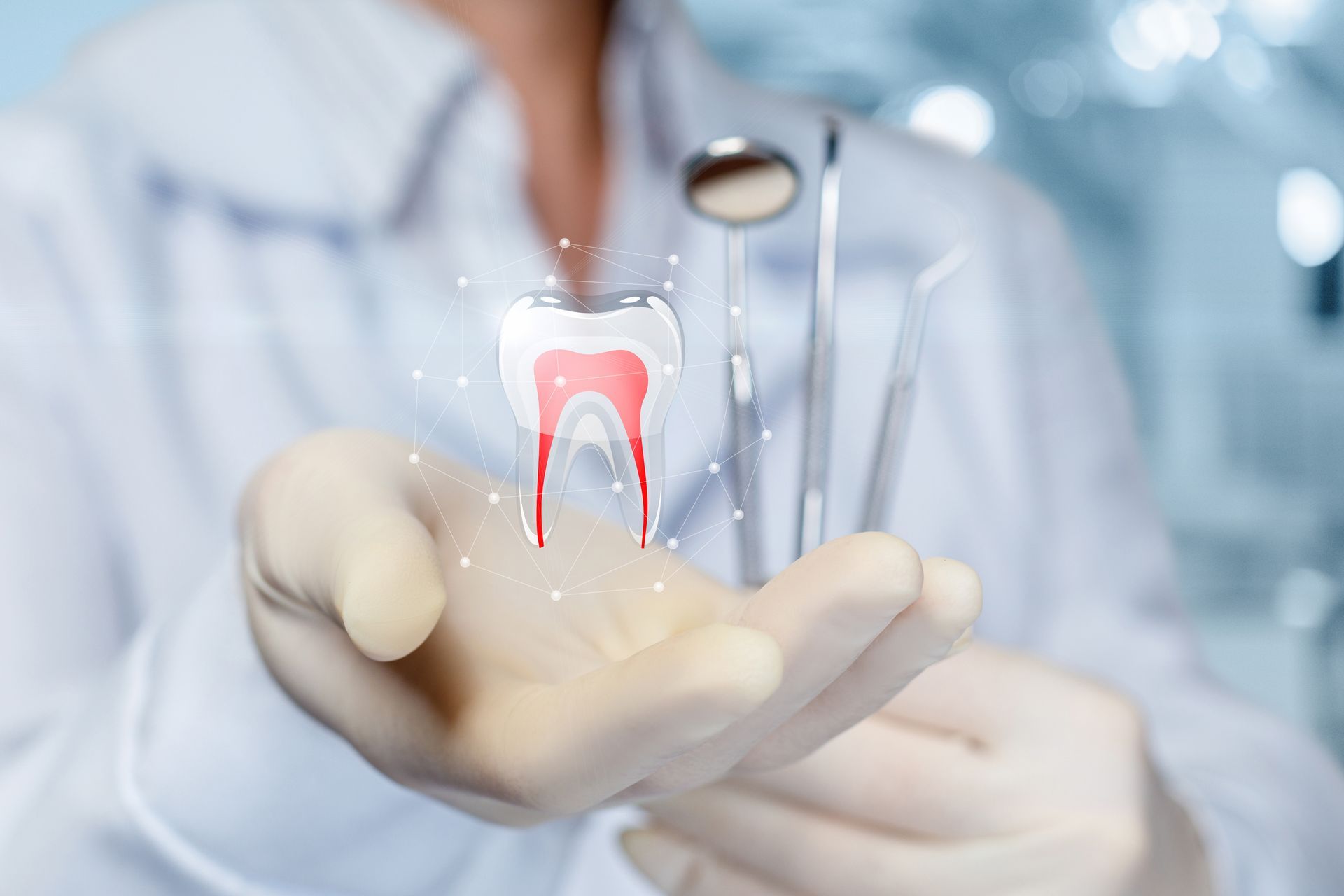About the speciality of Oral Medicine
Oral Medicine: Transforming dental care to improve health
Oral Medicine is dedicated to the prevention, diagnosis and treatment of various pathologies of the oral cavity, which can affect the soft tissues (gums and mucous membranes), lips, tongue, throat and neck.
Oral Medicine is a dental specialty that is essential for the early detection and treatment of oral diseases, as well as systemic diseases with oral manifestations, addressing orofacial conditions through evidence-based practices. Specializing in the diagnosis and treatment of oral mucosal lesions, oral medicine doctors contribute to a multidisciplinary approach, working to improve oral health and general well-being.
The oral cavity is an important structure of our body, involved in such crucial functions as eating, speaking and socializing, and Oral Medicine works closely with the other areas of Dentistry.

Oral medicine also includes monitoring the effects caused in the mouth by certain types of medication or even the manifestations resulting from systemic or autoimmune diseases.
Some of the pathologies affecting the oral cavity, although benign, are quite bothersome and painful, requiring specific treatment. On the other hand, they can be signs of more complex and/or potentially malignant conditions, where early diagnosis is essential for successful treatment.
Whenever necessary, various diagnostic aids will be used, including biopsies.
Benefits of Oral Medicine
Precise diagnosis
Oral medicine specialists have the skills to diagnose a wide range of oral and maxillofacial conditions, from simple injuries to more complex problems related to the temporomandibular joint (TMJ) and facial pain. An accurate diagnosis is key to starting the right treatment and avoiding future complications.
Multidisciplinary treatment
Oral Medicine adopts a multidisciplinary approach to treatment, often collaborating with other health professionals such as dentists, orthodontists, maxillofacial surgeons, physiotherapists and doctors from other specialties. This collaboration allows for integrated and comprehensive care for patients.
Preventing complications
By diagnosing and treating oral problems early, oral medicine can help prevent more serious complications in the future. For example, early treatment of gum disease can prevent bone loss and the eventual loss of teeth.
Improved Quality of Life
Treating oral conditions can significantly improve patients' quality of life by reducing pain, restoring proper jaw and tooth function, and improving facial and smile aesthetics.
Pathologies Treatment

Oral lesions
Including ulcers, canker sores, traumatic lesions, precancerous and cancerous lesions, and lesions caused by systemic diseases (hematological, hepatic, renal and cardiovascular diseases).

Oral cancer
Diagnosis, treatment and follow-up of oral cancer.

Orofacial pain
Orofacial pain is a category of pain that affects the mouth, face, head and neck. It can include pain in the jaw muscles, temporomandibular joints (TMJ), teeth, gums, tongue, lips, cheeks, palate, as well as adjacent areas of the head and neck.
Our Clinical Team is here to help you!
Equipa Clínica

Bruno Queridinha
Oral Medicine, Oral Surgery, Implantology and Periodontology
Nº 7031/OMD

Ana Jácome
Oral Medicine
Nº 397/OMD
Bruno Queridinha
Oral Medicine, Oral Surgery, Implantology and Periodontology
Nº 7031/OMD
FAQ's
-
1. What should I expect from an oral medicine consultation?
The process of an oral medicine consultation involves comprehensive assessments of the state of oral health, including a thorough examination of the oral and orofacial structures. The patient's personal and family history, as well as the oral health and lifestyle habits adopted.
During the consultation and whenever necessary, diagnostic tests may also be carried out and, if justified, a biopsy will be taken. The aim is to identify the etiology of the orofacial pathology. You will receive patient-centered care with a treatment plan tailored to your case, which will always be accompanied by an awareness-raising approach to adopting practices that promote your oral health.
-
2. What lifestyle factors can affect oral health?
Lifestyle choices, such as diet and tobacco consumption, significantly influence oral health. Regular brushing and flossing have an impact on oral health. Poor hygiene and excessive consumption of foods and drinks with a high sugar content are the main causes of oral health problems. Quitting smoking can greatly improve not only oral health but also general well-being.
Awareness of lifestyle factors allows patients to prioritize their oral health.
-
3. How can oral health affect general well-being?
Maintaining good oral health is crucial to general well-being. Oral infections can affect quality of life, while dental pain can have an impact on daily activities. Good oral health contributes to self-esteem and reduces the risk of systemic diseases.
In conclusion, oral medicine plays a crucial role in maintaining dental health and identifying potential systemic diseases with oral repercussions. It is important to seek specialized care from oral medicine professionals who have the necessary knowledge to diagnose and treat a wide range of oral diseases or those with an impact on oral health. Routine oral consultations are essential to ensure early intervention and prevent the pathology in question from progressing. In addition, lifestyle factors such as diet, tobacco consumption and oral hygiene practices have a significant impact on oral health and general well-being. By prioritizing oral health and making healthy lifestyle choices, you can improve your overall health. Take the first step towards better oral health by making an appointment with an oral medicine professional today.
Agreements and Partnerships




Our Clinical Team is here to help you!
About Us
Dental Specialities
@ 2023 All rights reserved - Malo Clinic SA | NIF 503411434 | ERS N.º12920




